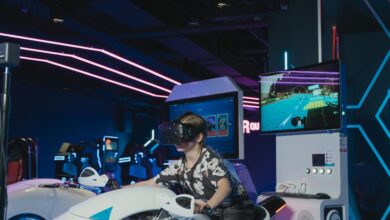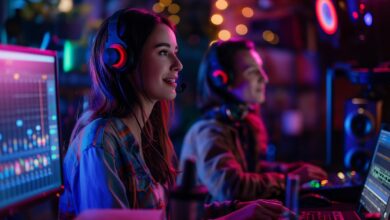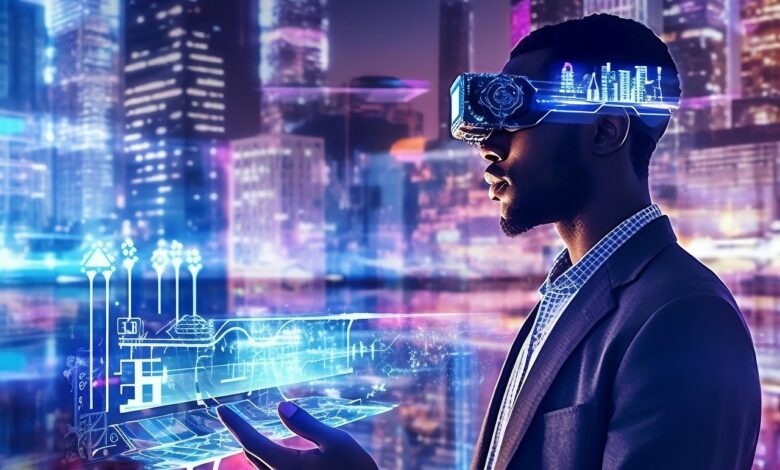
Digital entertainment is developing at a rate never before seen. The way people enjoy entertainment is changing as a result of the rise of artificial intelligence (AI), virtual reality (VR), and streaming platforms. Digital platforms are expected to become even more intelligent, interactive, and immersive after 2025, providing viewers with personalized and borderless experiences.
Contents
- 1 2. How Digital Entertainment Has Evolved
- 2 3. The Role of Artificial Intelligence in Entertainment
- 3 4. Virtual and Augmented Reality: The Next Big Thing
- 4 5. The Rise of Streaming Platforms
- 5 6. Gaming as the New Entertainment Frontier
- 6 7. Blockchain and NFTs in Entertainment
- 7 8. Personalized and Interactive Experiences
- 8 9. Social Media as an Entertainment Powerhouse
- 9 10. Challenges Facing the Digital Entertainment Industry
- 10 11. The Social and Cultural Evolution of Entertainment
- 11 12. Artificial Intelligence and Personalization
- 12 13. The Rise of Immersive Experiences
2. How Digital Entertainment Has Evolved

Ten years ago, going to the movies or watching television was considered entertainment. Today, streaming services, gaming apps, and social media have taken over. This shift from traditional to digital media has created new opportunities for creators and changed how audiences consume content — anytime, anywhere.
3. The Role of Artificial Intelligence in Entertainment
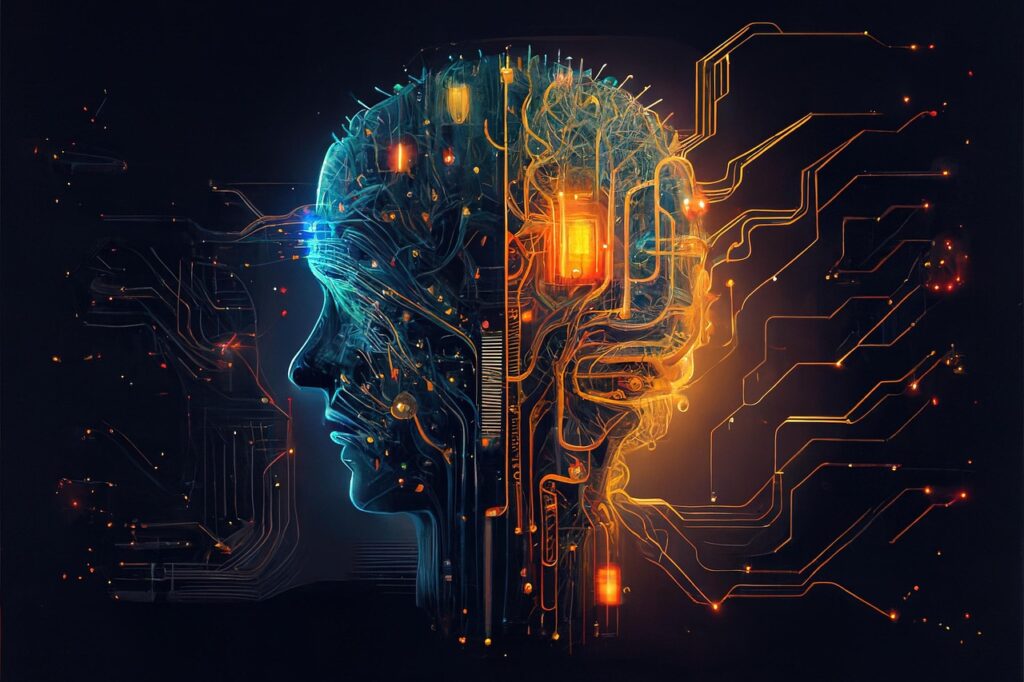
AI is reshaping entertainment like never before. It powers content recommendations, scriptwriting, and even virtual actors. AI is used by platforms like Netflix and Spotify to look at user behavior and suggest what you might like next. In the Future of Digital Entertainment, AI will also help filmmakers and musicians produce smarter, more engaging content faster.
4. Virtual and Augmented Reality: The Next Big Thing
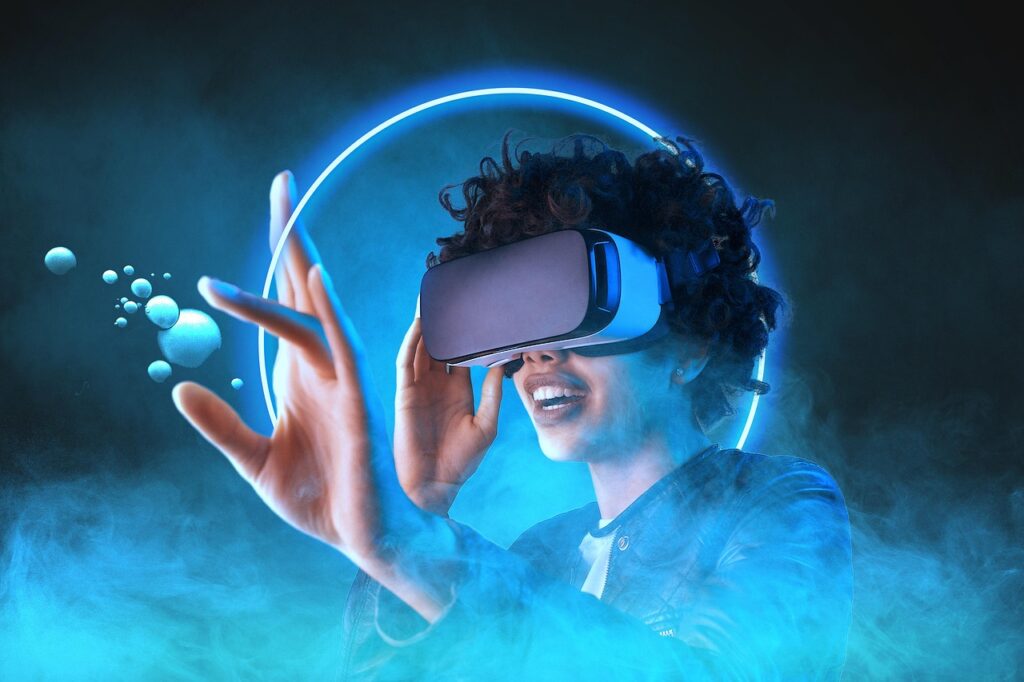
Augmented Reality (AR) and virtual reality (VR) are bringing immersive experiences to screens beyond. VR gives you the experience of being inside a movie while watching it. AR, on the other hand, enhances real-world experiences with digital overlays. These technologies are set to redefine how audiences watch movies, attend concerts, and even interact with games.
5. The Rise of Streaming Platforms
Streaming has become the heartbeat of digital entertainment. Platforms like Netflix, Amazon Prime Video, Disney+, and YouTube dominate the space, offering endless content libraries. These services will soon include AI-generated shows, interactive episodes, and audience participation in real time.
6. Gaming as the New Entertainment Frontier
Gaming is no longer just for fun — it’s now a massive entertainment industry worth billions. People can play high-quality games without spending a lot of money on expensive hardware thanks to online multiplayer, eSports, and cloud gaming services like Xbox Game Pass and NVIDIA GeForce Now. The Future of Digital Entertainment will merge gaming with storytelling, where users become part of the narrative.
7. Blockchain and NFTs in Entertainment
Blockchain technology is revolutionizing content ownership and monetization. Using NFTs (Non-Fungible Tokens), artists, filmmakers, and musicians can sell their work directly to fans. This removes middlemen and gives creators more control over revenue. In the future, you might “own” a piece of your favorite movie or music video as an NFT collectible.
8. Personalized and Interactive Experiences
Entertainment is no longer one-size-fits-all. Platforms now track user preferences to create custom playlists, storylines, and recommendations. The next phase will include formats called “choose-your-own-adventure,” in which viewers can choose how a show or movie plays out, making viewing truly interactive.
9. Social Media as an Entertainment Powerhouse
Communication has given way to full-blown entertainment on social media. Apps like TikTok, Instagram Reels, and YouTube Shorts dominate user attention. In the Future of Digital Entertainment, these platforms will integrate advanced AI filters, live commerce, and virtual influencers — blurring the lines between reality and fiction.
10. Challenges Facing the Digital Entertainment Industry
Data privacy, content piracy, and screen addiction are the industry’s primary obstacles, despite its expansion. As digital consumption grows, companies must prioritize the ethical use of technology and protect user data. The greatest challenge of the future will be balancing innovation with responsibility.
11. The Social and Cultural Evolution of Entertainment
Entertainment has always reflected society — and now, the digital era is transforming culture itself. Entertainment has become more social and participatory thanks to platforms like TikTok, Instagram, and YouTube. Anyone can be a creator, and audiences are now part of the creative process. Viral trends, dance challenges, and meme culture have turned entertainment into a global conversation.
In parallel, the industry is becoming more diverse and inclusive. People from every background can share their stories, talents, and ideas with the world. This democratization of entertainment is empowering millions to express themselves freely and build digital careers.
Additionally, live streaming has emerged as an effective tool for educators, gamers, and artists to interact directly with audiences. It’s no longer just about watching — it’s about engaging, collaborating, and connecting in real time.
12. Artificial Intelligence and Personalization
Artificial Intelligence (AI) is redefining entertainment by making it more personalized. In 2025, almost every digital platform will use AI to understand user behavior, interests, and emotions.
AI tools recommend movies, music, or games that match your taste perfectly. YouTube adjusts video suggestions, Spotify curates mood-based playlists, and streaming platforms personalize their entire home screens for you. Beyond recommendations, AI is now being used to create content. Virtual influencers, AI-generated music, and realistic digital avatars are becoming mainstream. This technology allows creators to reach global audiences faster while maintaining quality and creativity.
The result? a world of digital entertainment where you are at the center of everything and every experience feels like it was made just for you.
13. The Rise of Immersive Experiences
In the beginning, digital entertainment consisted of playing simple games or watching videos online. But now, it’s all about immersion — creating experiences that make you feel part of the story.
Virtual Reality (VR) and Augmented Reality (AR) have made entertainment more exciting than ever. People can now step into virtual concerts, attend live shows from home, and even explore fantasy worlds through headsets.
Streaming giants like Netflix and Disney+ are experimenting with interactive storytelling, where viewers make decisions that shape the plot. In the meantime, gaming platforms are introducing environments that look like the metaverse and connect millions of users in real time. These immersive trends demonstrate that the future of digital entertainment is not just about passive viewing but also about participation. Living the experience is the key.
Conclusion
Digital entertainment in the future is expected to be more intelligent, inclusive, and immersive. The way we experience joy, emotion, and connection will be reimagined by technology, whether through VR-based concerts or storytelling driven by AI. One thing is clear — the future of entertainment isn’t coming; it’s already here, and it’s digital.
FAQs
What technologies will shape the Future of Digital Entertainment?
Artificial Intelligence, Virtual Reality, Augmented Reality, and Blockchain are the major technologies driving innovation in entertainment.
How will AI change the entertainment industry?
AI will help personalize user experiences, create smart recommendations, assist in content creation, and even simulate virtual actors and musicians.
What is the biggest trend in the Future of Digital Entertainment?
Interactive and immersive content, in which users actively participate rather than merely watch, is the most prominent trend.


